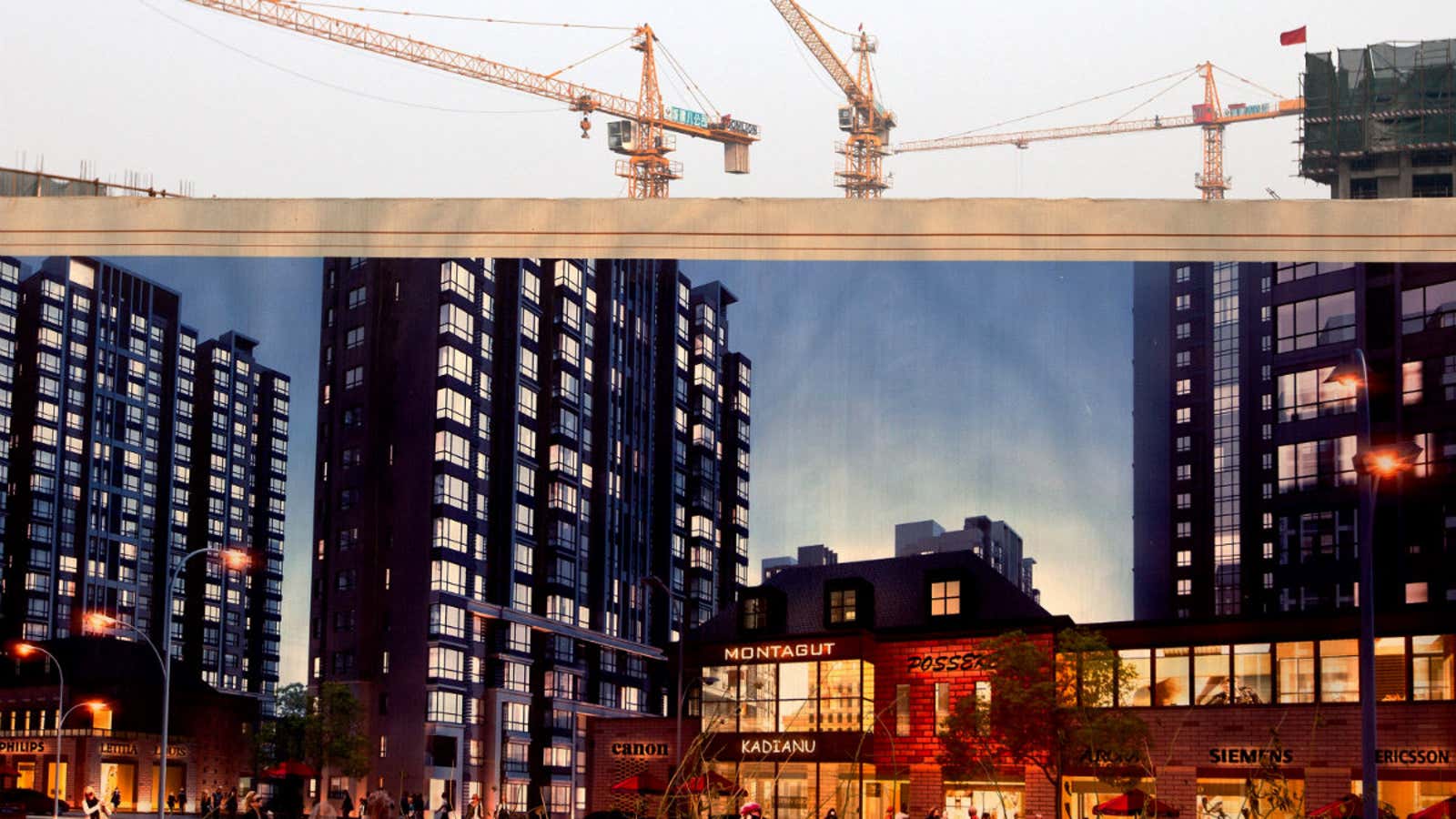Liu Jingping, a realtor in Beijing, arrived at a 26-story apartment complex on the western edge of the city’s third ring road at 11:22 am.
In less than an hour, her clients, first-time home buyers—a neatly dressed young lawyer, accompanied by his new wife and middle-aged mother—had finished looking at the apartment and a unit on the other side of the building (for the in-laws). Almost no words had been exchanged, except some mumbled queries about how many tenants had lived there before and how many square meters the units measured together.
But within half a day, they made an offer on both apartments totaling $3.5 million, nearly four times the original price paid in 2005. The deposit and down payment would be made in cash.
The buyers’ only condition: that the deal close before the end of March, which was in 11 days.
Such is the pace of real estate in China right now, as the market scrambles to beat new government regulations meant to deter precisely this kind of frenzied buying and selling of property.
On March 1, the equivalent of China’s government cabinet, the State Council, introduced new measures to bring the country’s skyrocketing housing prices back down to earth. The Council’s five-point guideline included a 20% capital gains tax on the sale of pre-owned homes, a notable change from the 1-2% tax previously levied on the sale price.
However, exact details on how and when the tax would come into effect remain unclear, triggering the mad-dash mentality.
In the first week after the policy was announced, the Beijing Municipal Commission of Housing and Urban-Rural Development reported that 9,400 homes were sold in the city, a 279.5% increase from the same period the year before, and a 140.5% jump from just the week prior.
Liu now carries three cellphones at all times, creating literally constant buzz around her as she tries to rush through the paperwork needed to finalize the transaction on the two apartments. In the five years she’s worked as a realtor, she says this is the fastest she’s ever seen the market move.
There is some doubt about whether the rush is warranted. The central government has talked tough about deflating China’s housing bubble since 2010, with similar measures like forcing banks to increase interest rates and down-payment requirements and launching property tax pilot programs in Shanghai and Chongqing. Even the “new” 20% capital gains tax has technically been around since 1994, though never strictly enforced.
Yet it still remains almost impossible for even middle-class couples to buy property without the help of both families’ life savings. And according to the National Bureau of Statistics, new home prices in most major Chinese cities are continuing to grow.
